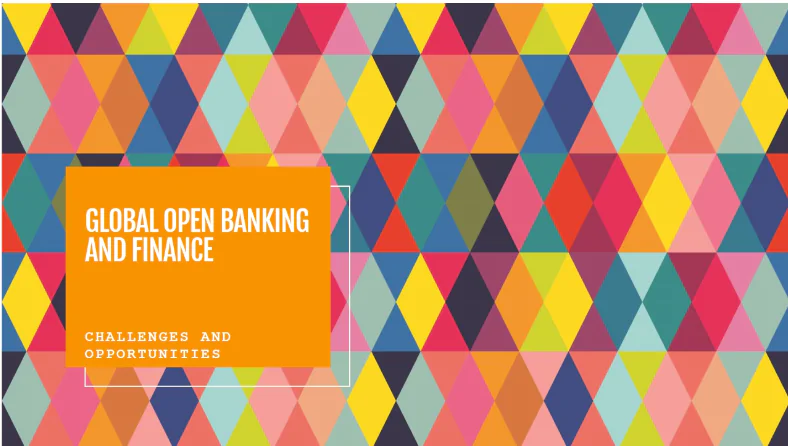On September 2, 2024, Saudi Central Bank (“SAMA”) issued its 2nd release of Open Banking Framework (ref: SAMA Announces Issuance of Second Release of Open Banking Framework).
As part of one of the Big4 consulting firm, I exposed to open banking in August 2020. We were responsible to establish open banking and open finance framework for a financial services regulator. Since then I worked with several regulators in Middle East, Africa, South Asia and APAC regions, multinational financial institutions and consulting firms. What I realized that there is huge thirst of learning open banking and finance but very limited use cases to understand what a country can achieve implementing open banking and open finance frameworks.
Lets explore a bit if open banking and finance a worthwhile investment or a resource drain?
Open banking is a financial practice that allows third-party financial service providers to access consumer banking, transaction, and other financial data from banks and non-bank financial institutions through the use of application programming interfaces (APIs). This access is granted with the customer’s explicit consent and aims to foster innovation, competition, and improved financial services.
Key Benefits of Open Banking:
- Enhanced Customer Experience: By enabling third-party providers to offer personalized financial products and services.
- Increased Competition: Encourages innovation and competition among financial institutions and fintech companies.
- Better Financial Management: Allows consumers to have a consolidated view of their financial data, making it easier to manage finances.
Several countries and their respective regulators have issued open banking and open finance regulations. Here are some notable examples:
1. United Kingdom: The Financial Conduct Authority (FCA) and the Competition and Markets Authority (CMA) have been at the forefront with the implementation of the Open Banking Standard.
2. European Union: The European Banking Authority (EBA) oversees the implementation of the Revised Payment Services Directive (PSD2), which mandates open banking across EU member states.
3. Australia: The Australian Competition and Consumer Commission (ACCC) regulates the Consumer Data Right (CDR), which includes open banking and is expanding to other sectors.
4. Brazil: The Central Bank of Brazil has introduced open banking regulations, which are part of a broader open finance initiative.
5. Mexico: The Comisión Nacional Bancaria y de Valores (CNBV) is working on implementing open banking regulations as part of the Fintech Law.
6. Hong Kong: The Hong Kong Monetary Authority (HKMA) has launched the Open API Framework for the banking sector
7. Saudi Arabia: Saudi Arabia Monetary Authority (SAMA) issued 2nd release of open banking framework on September 2024. SAMA’s framework outlines the framework for enabling customers to securely share their financial data with third-party providers. This framework aims to foster innovation and competition in the financial sector
8. Bahrain: Open Banking Framework (BOBF) launched in October 2020, the BOBF includes detailed operational guidelines, security standards, customer experience guidelines, and technical API specifications. This framework was developed in collaboration with Deloitte and in consultation with retail banks and other financial institutions in Bahrain.
9. United Arab Emirates: The UAE Central Bank (CBUAE) has recently implemented a comprehensive Open Finance Regulation. This regulation establishes a framework for the licensing, supervision, and operation of open finance services in the UAE
Strong Use Cases of Open Banking:
- Personal Finance Management:
Example: Apps like Mint and You Need a Budget (YNAB) use open banking APIs to aggregate data from multiple accounts, helping users track spending, set budgets, and manage their finances more effectively.
- Payment Initiation Services:
Example: Revolut and TransferWise (now Wise) use open banking to facilitate seamless and instant payments directly from users’ bank accounts, bypassing traditional card networks and reducing transaction fees.
- Account Aggregation:
Example: Plaid provides a platform that connects various financial accounts, allowing users to see all their financial information in one place. This is particularly useful for budgeting and financial planning.
- Lending and Credit Scoring:
Example: CreditLadder uses open banking data to help tenants improve their credit scores by reporting rent payments to credit bureaus. This helps individuals with limited credit history build a stronger credit profile.
- Business Financial Management:
Example: Xero and QuickBooks integrate open banking APIs to automate accounting processes, providing real-time financial data and insights for small businesses.
Open Banking: Implementation Status and Challenges!!!
Open banking has been a transformative force in the financial sector, but its implementation varies significantly across different countries. Here’s an overview of the current status and challenges faced:
Successful Implementations
- United Kingdom:
Progress: The UK is often cited as a leader in open banking. The Financial Conduct Authority (FCA) and the Competition and Markets Authority (CMA) have successfully implemented the Open Banking Standard, resulting in a robust ecosystem of third-party providers and innovative financial services.
Impact: Over 4 million UK consumers and businesses use open banking services, benefiting from improved financial management tools and competitive financial products1.
- European Union:
Progress: The Revised Payment Services Directive (PSD2) has been widely adopted across EU member states, fostering a competitive and innovative financial environment.
Impact: Many fintech companies have emerged, offering services like account aggregation, payment initiation, and personalized financial advice.
- Australia:
Progress: The Consumer Data Right (CDR) framework, regulated by the Australian Competition and Consumer Commission (ACCC), has successfully implemented open banking and is expanding to other sectors.
Impact: Consumers have greater control over their financial data, leading to more tailored financial products and services.
Ongoing Challenges
- Data Security and Privacy:
Issue: Ensuring robust data security and privacy is a significant challenge. With increased data sharing, the risk of data breaches and unauthorized access rises.
Solution: Implementing stringent security measures and compliance with data protection regulations like GDPR is essential.
- Regulatory Compliance:
Issue: Navigating complex regulatory landscapes can be challenging for both banks and fintech companies.
Solution: Continuous collaboration between regulators and industry players is necessary to streamline compliance processes.
- Customer Trust:
Issue: Building and maintaining customer trust is crucial. Customers need assurance that their data will be handled securely and used responsibly.
Solution: Transparency and clear communication about data usage and security practices are key to gaining and retaining customer trust.
- Interoperability and Standards:
Issue: Achieving interoperability between different financial institutions and third-party providers is a technical challenge.
Solution: Developing standardized APIs and data formats is necessary to ensure seamless integration and data exchange.
Countries Still Struggling
- United States:
Progress: The US has made strides in open banking, but the lack of a unified regulatory framework has led to slower adoption compared to the UK and EU.
Challenges: Fragmented regulations and varying state laws create hurdles for nationwide implementation.
- Emerging Markets:
Progress: Many emerging markets are in the early stages of adopting open banking regulations4.
Challenges: Limited technological infrastructure and regulatory frameworks can slow down the implementation process.
Conclusion:
While some countries have successfully implemented open banking with significant benefits, others are still navigating the complexities and challenges. Continuous efforts in regulatory alignment, technological advancements, and building customer trust are essential for the widespread success of open banking.
Author:
Muhammad Rashid, CAMS, CGSS, Spec.Cert(FinCrime.MFS)
Founder and CEO – Finbler





